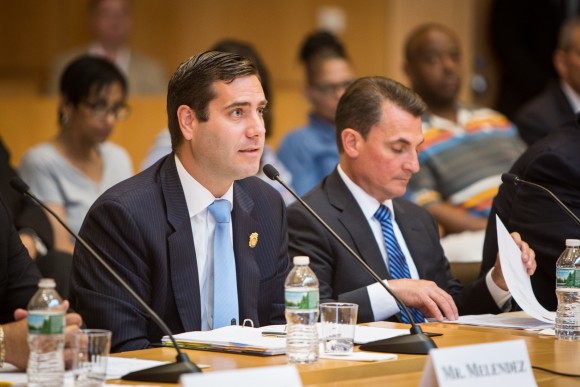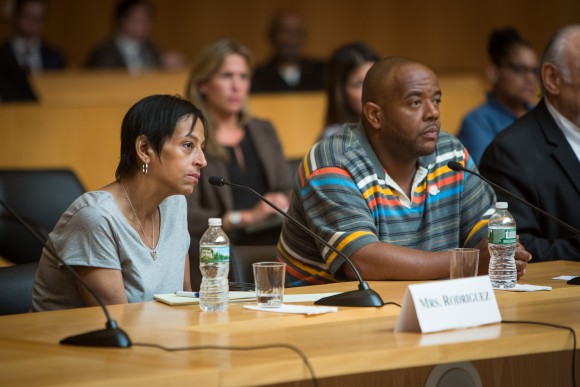Why the MS-13 Gang Is So Violent
The gang’s motto is ‘kill, rape, control’
November 28, 2017 11:33 am Last Updated: November 29, 2017 8:40 pm
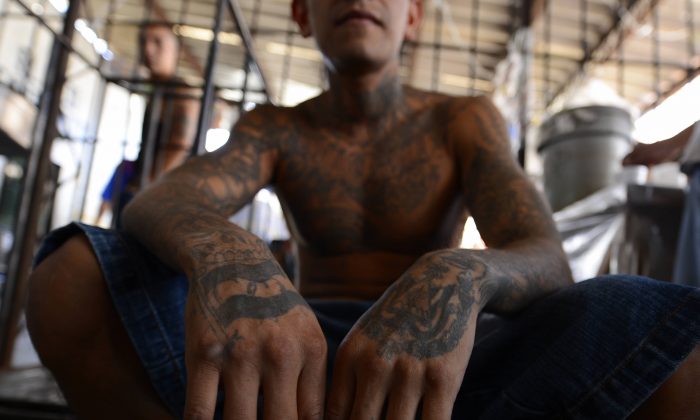
An MS-13 gang member in detention in San Miguel, El Salvador, on March 4, 2013. (Marvin RECINOS/AFP/Getty Images)
WASHINGTON—The vicious nature of MS-13 gang killings came to the fore again last week with the release of court documents detailing a grisly murder in Maryland.
Ten MS-13 members stabbed a victim
more than 100 times, decapitated and
dismembered him, and ripped his heart
out before throwing him into a grave in
Wheaton Regional Park, documents say.
Gang members had lured the victim to the park to kill him, an informant told police. The informant said he was part of the killing and led detectives to the gravesite on Sept. 5. The informant “further described the circumstances of the murder and detailed the choking, stabbing, decapitating, and dismembering the victim’s body before dumping it in the pre-dug hole,” according to the court document.
This incident only adds to MS-13’s “long litany of homicides and heinous crimes,” said Robert J. Bunker, an adjunct research professor at the Strategic Studies Institute of the U.S. Army War College.
In April, four young men were brutally murdered in the wooded area of a local park on Long Island, New York. The victims, aged between 16 and 20, all suffered significant bodily trauma from sharp instruments, consistent with MS-13’s modus operandi of using machetes and knives to kill, according to local police.
The killings occurred less than six months after the brutal slaying of two teenage girls in a neighboring town on Long Island. Since 2010, MS-13 members have been charged with more than 39 murders on Long Island.
More than 90 percent of the MS-13 members arrested by Immigration and Customs Enforcement (ICE) this year were in the United States illegally.
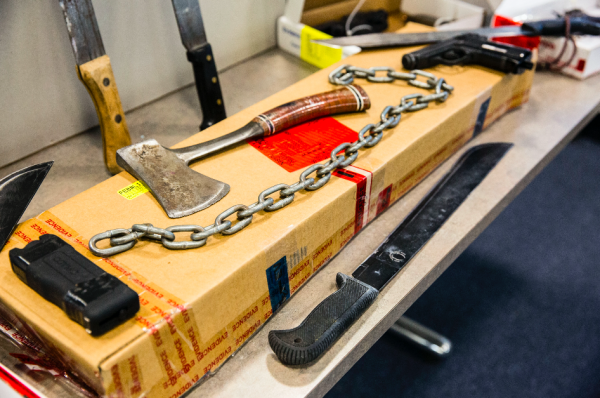
Background
MS-13’s motto is “kill, rape, control.”
The gang, also known as Mara Salvatrucha, was initially formed by Salvadoran immigrants that fled to Los Angeles during the civil war in their home country.
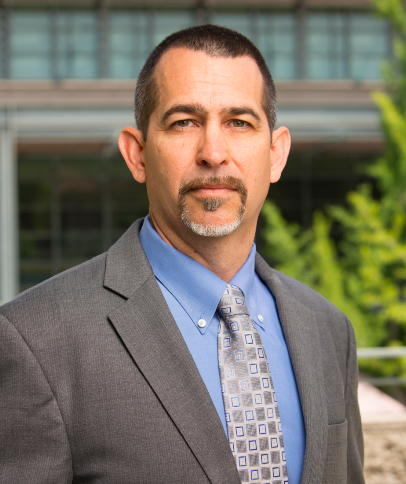
“The gang became increasingly violent—drawing upon the Salvadoran wartime experiences of its members and their cultural use of the machete—to protect its members from Mexican-American street gangs and their rival, the hybrid 18th Street gang,” Bunker said.
A huge deportation
effort in the early
2000s, which
expelled thousands of MS-13 members
from the United States back to El
Salvador, contributed to the gang taking
hold in Central America. El Salvador is
now the gang’s operational base. The
Justice Department estimates around
40,000 members live in Central America
and 10,000 live in the United States.
“MS-13 has created a brand—like Los Zetas in Mexico—based on its reputation for engaging in unspeakable acts of brutality using machete and knife attacks against those that cross it,” Bunker said.
“This barbaric reputation greatly aids the gang in its collection of street taxes from local merchants and helps it to protect its turf and drug trade against opposing gangs who are afraid to face the ‘street terrorism’ it can wage against them.”
The gang’s primary means for income in places such as Long Island are extortion and prostitution, according to Peter Fitzhugh, deputy special agent in charge of ICE’s Homeland Security Investigations, Long Island.
He said gang members extort money from families and small businesses that are part of the community and who fear some type of reprisal. “We’re not talking about large sums of money—we’re talking about instances of a few hundred dollars,” he said.
MS-13 bolsters its ranks through recruitment in schools, often of youth coming into the United States from Central America as unaccompanied minors.
“What we’re seeing is that MS, by and large, is using the schools as recruitment centers,” Fitzhugh said. “The fear of not joining the gang is so significant that kids feel compelled, that they have no other option but to join the gang. And so obviously this is a win-win for MS, because this environment is there, and a lot of these kids are vulnerable.”
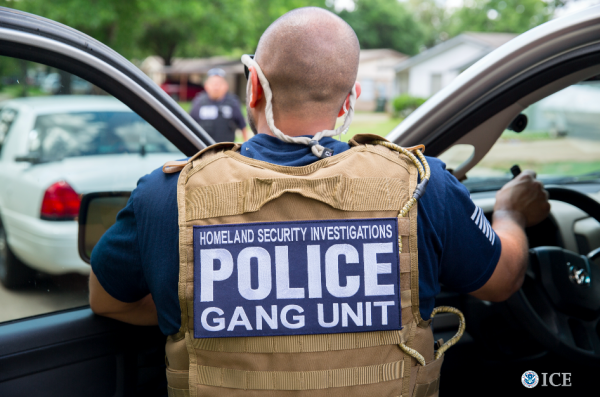
Fitzhugh said the gang’s propensity for ruthlessness and violence is its calling card.
“That’s what they use to force membership, that’s what they use to attract people who are like-minded,” he said. “It’s the level at which they execute their gang justice that really is eye-opening—baseball bats, machetes, knives. It’s really ruthless stuff.”
Bunker said the surge of younger members coming into the gang, “out to make their bones,” has only served to exacerbate the levels of violence.
He said that although MS-13 is the
most violent gang in the United
States right now, the use of torture-
killing is far more developed by the
Mexican cartels, ”who have been
known to dissolve victims while
alive in acid-filled barrels.”
Attorney General Jeff Sessions blasts Trump’s
DACA sell out…. Will Sessions move to impeach
the Swamp Keeper who hired 70 illegals to work
“cheap” at Mar Lago?
DOJ, DHS Announce 267 Arrests in US, Overseas in Crackdown on MS-13 Gang

(Screenshot of ICE video)
(CNSNews.com) - The Justice Department and Department of Homeland Security announced the arrests of 267 people in the United States and overseas as part of Operation Raging Bull - the Trump administration’s crackdown on transnational gangs.
A total of 214 people were arrested in the United States, and 53 more in El Salvador as part of the administration’s targeted law enforcement crackdown on MS-13.
“With more than 10,000 members across 40 states, MS-13 is one of the most dangerous criminal organizations in the United States today,” said Attorney General Jeff Sessions. “President Trump has ordered the Department of Justice to reduce crime and take down transnational criminal organizations, and we will be relentless in our pursuit of these objectives.
“That’s why I have ordered our drug trafficking task forces to use every law available to arrest, prosecute, convict, and defund MS-13. And we are getting results. So far this year, we have secured convictions against more than 1,200 gang members and worked with our partners in Central America to arrest and charge some 4,000 MS-13 members,” Sessions said.
The arrests “are the next step toward making this country safer by taking MS-13 off of our streets for good,” the attorney general said.
Of the 214 arrested in the U.S., 93 were arrested for a multitude of charges, including murder, aggravated robbery, Racketeering Influenced Corrupt Organization (RICO) violations, Violent Crime in Aid of Racketeering (VICAR) offenses, drug trafficking, drug possession, firearms offenses, domestic violence, assault, forgery, DUI, and illegal entry/reentry.”
The other 121 people arrested were charged with administrative immigration violations. Furthermore, 16 of the 214 arrested were U.S. citizens, while 198 were foreign nationals. Only five of those 198 foreign nationals had legal status. The foreign nationals hailed from El Salvador (135), Honduras (29), Mexico (17), Guatemala (12), Ecuador (4) and Costa Rica (1).
Also, 64 of the foreign nationals arrested crossed the border illegally as children and are now adults.
from Operation Raging Bull, including: the arrest and
indictment of four MS-13 gang members in Baltimore,
Md., for violent crimes in aid of racketeering and
conspiracy to commit murder in aid of racketeering;
the arrest and indictment of eight MS-13 members in
Greenbelt, Md., on charges of conspiracy to participate
in a racketeering enterprise, conspiracy to distribute
and possession with intent to distribute controlled
substances and conspiracy to interfere with interstate
commerce by extortion.
In Battle Against MS-13, Focus Shifts to Unaccompanied Minors
Unaccompanied children arriving in the US are often escaping violence in Central America, only to become prime recruitment targets for the MS-13 gang
June 28, 2017 12:27 pm Last Updated: August 18, 2017 11:44 am

MISSION, Texas—The Border Patrol truck brakes as three figures walk up the dirt road, clutching water bottles. A 15-year-old girl and her 11-year-old cousin from Honduras have just crossed the Rio Grande from Mexico with another 15-year-old boy from El Salvador. They are now known as unaccompanied minors—children under 18 who cross the border illegally without a parent or guardian.
We meet on the side of the road, and Border Patrol agents shepherd the children to a sliver of shade to wait for a van to pick them up. Border Patrol is obliged to transfer unaccompanied minors to the Office of Refugee Resettlement (ORR) within a maximum of 72 hours.
“But they’re never with us that long,” said Marlene Castro, a Border Patrol supervisory agent in the Rio Grande Valley. “Because they’re minors, they’re top priority, and everything is taken care of real quick.”
If the children were from Mexico, Border Patrol would have the authority to turn them back, straight back to their home country. However, the agency cannot turn Central American minors back to Mexico—even if they admit to being a member of a violent gang. Border Patrol has to allow them into the United States and process them through the court system (which has its own problems—most notably, a backlog of more than 542,000 cases).
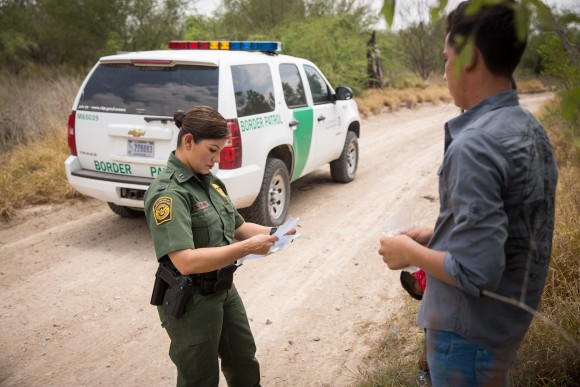
None of the three children speak a lick of English, and we are forbidden from asking them questions because they are minors. They are quiet, only speaking when Border Patrol asks them questions.
They show the agents their birth certificates. The boy says he has family in San Francisco, and the cousins tell Border Patrol their family is in Louisiana.

It is children like these from Central America who have become the focal point of a new battle against the violent gang called Mara Salvatrucha, or MS-13.
Even if an unaccompanied minor is not affiliated with MS-13 before getting to the United States, they become a prime target for recruitment.
MS-13 was formed in Los Angeles in the 1980s by Salvadorans who sought asylum from civil war. They grouped together against local Mexican gangs, and have since morphed into a transnational criminal organization with deep ties to El Salvador. The FBI estimates that MS-13, which has been labeled a terrorist organization in El Salvador, has 6,000 to 10,000 members across at least 42 U.S. states. In addition, more than 60,000 members operate internationally, mostly in El Salvador, Honduras, and Guatemala.
In the last several years, in this small horseshoe bend of the Rio Grande in southeast Texas, thousands upon thousands of unaccompanied children have crossed the border illegally and presented themselves to Border Patrol.
Nationwide, almost 200,000 of these minors have entered the United States since fiscal year 2014. At least 60 percent crossed along the 320-mile stretch of the Rio Grande Valley Sector, one of nine sectors along the southwest border.
Seventy-five percent of the 200,000 unaccompanied minors hail from El Salvador, Honduras, or Guatemala. The remainder were born in Mexico. The number of minors from those three Central American countries doubled from fiscal 2011 to 2012, then doubled again from fiscal 2012 to 2013, and again from 2013 to 2014.
Once a child is turned over to the ORR (which is under the Department of Health and Human Services), they are housed in a facility for an average of 45 days before being released to a sponsor.
A cursory review on June 9 of the unaccompanied minors in some of ORR’s facilities found that 35 of the 138 minors were voluntarily involved with gangs, according to ORR Director Scott Lloyd, speaking at a Senate hearing on June 21. He said four had reported that they had been forced into gang participation.
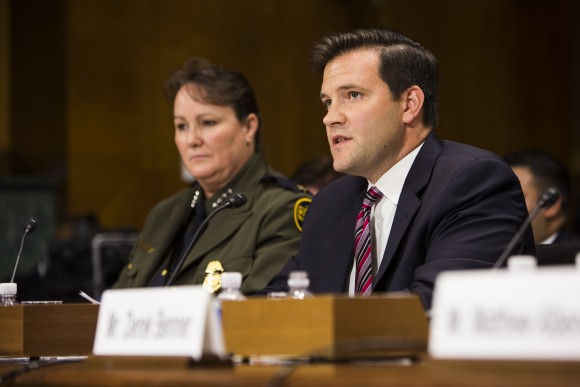
In fiscal 2016, 95 percent of unaccompanied minors were released from the ORR to a sponsor, Lloyd said.
“Of these, we released 55 percent to parents, 36 percent to close relatives, and 9 percent to distant relatives or non-relatives,” he said.
Lloyd confirmed that the sponsor does not need to be a family member, nor do they need to be residing in the country legally.
Data from the Department of Health and Human Services showed that 80 percent of the 71,000 mostly Central American children placed between February 2014 and September 2015 were sent to sponsors who were not in the country legally, according to a 2016 report by The Associated Press. Only 4 percent were sponsored by American citizens, the report said.
Homeland Security said in March that at least 60 percent of the children initially determined to be “unaccompanied alien children” are not eligible for the status or the benefits it affords (including health care and social services) because they are entering the country to live with one or more parents illegally residing in the United States.
The ORR is required to confirm the address of the sponsor, transport the child to the sponsor, and make a follow-up phone call 30 days after releasing the child. In the majority of cases, that is the end of the agency’s involvement.
There is no follow-up to ensure the minor attends their obligatory court hearing that will determine their immigration status—whether they can stay in the United States, qualify as a refugee, or be granted some other legal status.
Lloyd says he is unaware of the percentage of children who show up to their hearings, and sponsors are not held accountable if the minor fails to appear.
Joseph Kolb, a fellow at the Center for Immigration Studies (CIS) in Washington, obtained court compliance numbers from the Executive Office for Immigration Review (EOIR), which runs the immigration courts under the Department of Justice.
From the period of July 18, 2014, through Sept. 26, 2016, EOIR received 79,743 new unaccompanied minor cases and completed 35,713 of them. Forty-one percent of these cases resulted in removal orders, mostly due to the minor not showing up at the hearing, according to the CIS report.
Only 24 percent out of the 35,713 completed cases resulted in the minor being given a legal status, such as asylum or a special green card for juveniles, Kolb said.
Government Focus
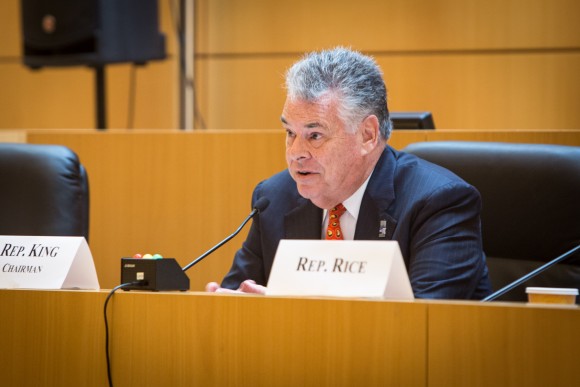
On June 20, Rep. Peter King (R–N.Y.), chairman of the Homeland Security Subcommittee on Counterterrorism and Intelligence, held a congressional hearing on Long Island to examine the ways MS-13 uses the unaccompanied minor program to populate its ranks.
“The bottom line is, MS-13 is a morally depraved, transnational, murderous gang which terrorizes innocent people,” King said in his opening statement.
“It is vital that we examine the threat posed by MS-13 and the extent to which this violent gang is able to exploit U.S. immigration programs and circumvent border security measures to gain entry into the United States,” he said.
Recent arrests on Long Island, New York, give insight into how intertwined the unaccompanied minor program is with MS-13 membership and recruitment.
Related Coverage
On March 2, 13 alleged MS-13 gang members were arrested in Suffolk County on a 41-count indictment that included seven murders.
Seven of the defendants entered the country as unaccompanied minors, according to Angel Melendez, special agent in charge for ICE Homeland Security Investigations (HSI) in New York, at the hearing on June 20. Three others are illegal immigrants, two are U.S. citizens, and one is a green card holder, according to Robert Capers, then-U.S. attorney for the Eastern District of New York.
On June 15, 41 alleged MS-13 members were arrested in Nassau County on an 85-count indictment. Nineteen of them entered the country as unaccompanied minors, 21 are in the country illegally, and one is a citizen, according to Nassau County Acting Police Commissioner Thomas Krumpter.
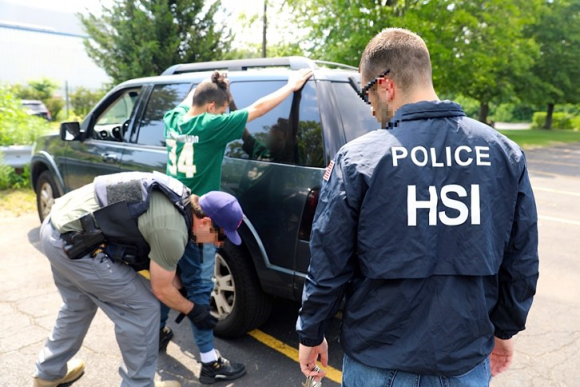
“It is clear that MS-13 and the rival gangs target these children for recruitment. They become a high-risk group because they are young, alone in a new country, have a language barrier and an unconventional family structure,” Krumpter said, adding that recruitment on or near school grounds is common.
Krumpter cited an attack on April 30 as an example of a “typical MS-13 gang assault” on Long Island.
Related Coverage
Three alleged MS-13 members with a machete attacked an individual they perceived to be a rival gang member, inflicting severe and serious lacerations, Krumpter said. One MS-13 member also fired a handgun five times, but no one was struck. All originally from El Salvador, two of the alleged gang members are illegal immigrants and one has unaccompanied minor status.
Source for Recruitment
Suffolk County Police Commissioner Timothy Sini asked for Congress to look into the unaccompanied minor program.
“While the overwhelming majority of these children live law-abiding lives, unaccompanied minors are undoubtedly a source of recruitment for MS-13,” he said at the hearing. “We understand that this is a humanitarian program and these children need to be placed. And we have a legal and moral obligation to place these children in our communities, but we need to do so responsibly.”
Sini said there needs to be better vetting of both the children and the sponsors, as well as post-placement compliance with immigration court obligations.
“And we need to make sure there is funding,” he said. “It’s not fair to Suffolk County to take in 4,500 [unaccompanied minors]—of the most vulnerable individuals—without any federal funding. So the message from law enforcement is, if we don’t provide that support for these children, MS-13 will.”
Sini said the median age of recent MS-13 arrestees is 18. “However, we have become aware of associates as young as 10.”
A sampling of 156 active gang members in Suffolk County revealed 39 to be unaccompanied minors, he said.
Gang Affiliation
HSI’s Melendez asked for Congress to amend the Immigration and Nationality Act to include gang affiliation as grounds to turn individuals back at the border, or to later deport them.
“It would make our work a lot more efficient in managing the flow of these unaccompanied alien children through our borders,” he said.
Melendez said it’s not unusual for an unaccompanied minor that was resettled by ORR in one community to turn up in a different area. Once they’re placed, the children are off the grid unless they pop up on law enforcement’s radar.
The ORR is not required to share any information with law enforcement, local school authorities, or social services about newly arrived minors.
‘Kids Killing Kids’
Also testifying at the hearing was
Evelyn Rodriguez, whose 16-year-old
daughter Kayla Cuevas
friend, 15-year-old Nisa Mickens,
were slain with a machete and
baseball bats—often the weapons of
choice of MS-13.
“They’re kids killing kids. That needs to be stopped,” Rodriguez said in an emotional testimony. “We cannot let our kids be afraid to go to school. Because this is where it all originates—in school.”
She said parents are afraid to send their children back to school.
“You see people staying home now, holding their kids tight,” she said. “Some of these schools do not contact law enforcement when a child is being threatened. They like to keep it undercover, they like to keep it among themselves, and they want to say they are taking care of it, but they can’t.”
Rodriguez said she battled with Brentwood High School for two years to try to protect Kayla from being targeted by MS-13 members.
“I just want these criminals that are coming into our country to be stopped,” she said. “They’re coming in here recruiting our kids.”


